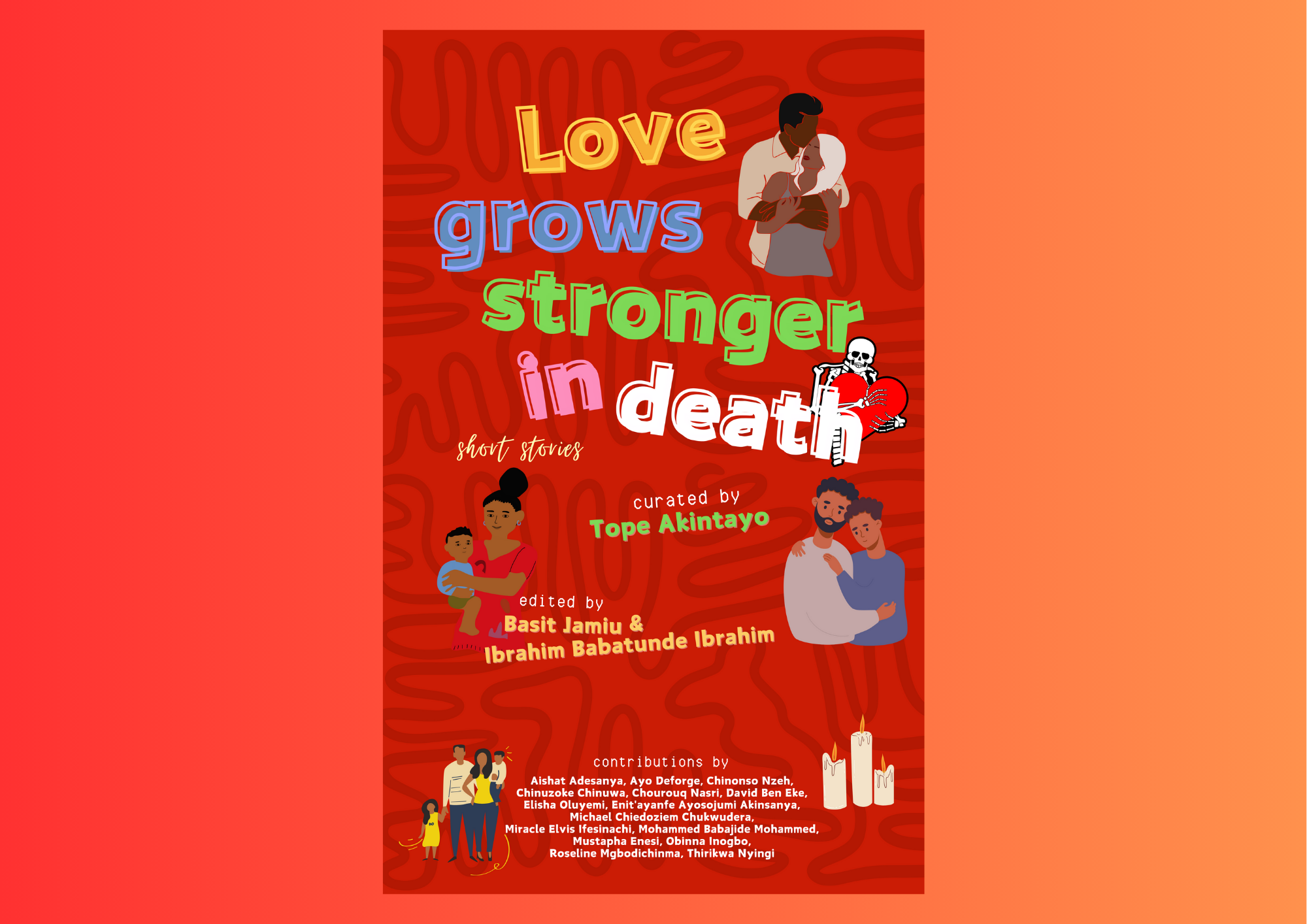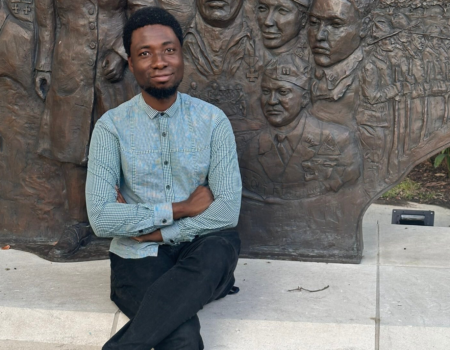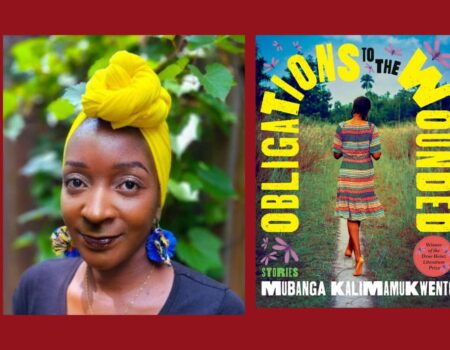Love Grows Stronger in Death is a collection of short stories curated by Tope Akintayo. The 15 contributors and their stories attempt to give us, the readers, varying shades of death and grief and in my opinion, it succeeds in doing so. The collection is widespread, of course touching on ‘traditional’ death, but also the death of characters’ selves, past and present, and even death misunderstood. Readers may find themselves having to take breaks from the collection as death is a heavy topic but surprisingly there are a few moments of reprieve which I did enjoy. As with all short story collections there are some stories that are stronger than others which is to be expected, but Akintayo has done a fantastic job of putting together this collection and keeping readers glued until the sobering end. Overall this collection felt like a steady hand on my shoulder walking me through the necessities of life. It reminded me that even though unfortunately death is a constant in all of our lives, beauty can be found everywhere.
Love Grows Stronger in Death opens well with Chinuzoke Chinuwa’s “The Good Spirits”. A tragically gorgeous story using Igbo mysticism to retell the day of a character’s death. Chinuwa’s writing is a captivating start and will for sure keep readers hooked in the collection for the long run. The feel of the story reminds me of ‘An Orchestra of Minorities’ by Chigozie Obioma, with the narrator being the voice of the slightly distant Chi who is filled with remorse and love for their host while watching them head toward danger. This spills well into “Omnipresent” by Roseline Mgbodichimma, a revenge story that readers may struggle to find their footing within the beginning but will quickly recover when it is clear that this is about a woman spirit and her love for her family. Mgbodichimma crafts an honest narrator who won me over almost immediately with her convictions. These two stories are very strong beginnings. They push past western perceptions of death, invite us to think about the possibilities of grieving yourself after death and how the feeling of grief is a solid indicator that we are alive and that we love.
Stories like ”Yesterday and Today and Tomorrow”Mustapha Enesi and “Choice, not Feeling”by Obinna Inogbo do not use traditional death to show readers what it means for someone to ‘die’, but explore the death of possibility. Enesi writes about an elderly woman with Alzheimer’s sitting on a custom made chair who ponders about what life could have been if she made different choices. Enesi also explores how sexual assault deprives someone of choice, written in a way that will leave readers thinking about experiences in the flesh that can feel close to the malice of death. This character feels real, a human who has been affected by life. Inogbo writes about how love can die over the most juvenile of things and how sometimes we really don’t know true love until it’s gone and given itself to someone who will cherish it more. Inogbo’s pen is like a finger wagging from side to side and reminding us that the grass is not always greener on the other side. These two stories were amongst the ones that stuck out to me the most as they were different to the others and challenge readers to think if death is only characterised by a corpse in a coffin. Love Grows Stronger in Death of Love. It also Grows Stronger in Death of Choice.
Chourouq Nasri nudges the readers towards something endearing in “Ass Ears”, with her character finding a new appreciation for a teacher after losing her mother. This story allows readers to think beyond the sadness that can come with death. Even though one connection may be severed in the physical, others another one can form and will lift us through the hard moments. Death brings us closer to the people that are still here with us. It forces us to hold on to them a little lighter and love them a little harder. This was important to me, and may also be important to readers who may have lost someone recently or even a long time ago because it helped me see that life does go on even though we may have lost a loved one. There is often temptation to sit in our feelings, which is good but as Nasri writes, this can sometimes leave us feeling like “a disembodied spirit looking down” as the world passes us by. We have reason to return to our bodies. Reason to continue walking through life and continue to live. There are new people to meet, and sometimes in experiencing death our reasons to love others and ourselves can become stronger.
A perspective that I had not considered in a long time was one of a child that has lost a schoolmate. The wailing of fellow classmates along with teachers and the quasi-disillusionment of the world that a young person may experience once they realise that their lives are not untouchable simply because they are youthful and full of expectations. “Going to Look for Adesua” by Michael Chiedoziem Chukwudera makes the readers feel the splash of cold water on their faces that the main character feels once he finds out that his classmate has passed away. The cause of death only adds another layer to it, one that I struggle to describe, but will describe as generic because readers will read this story and understand that death can happen to anyone. This adds to this earlier mentioned experience that I feel Chukwudera has imbued into this story. At the end there is a nice commentary on Father-Son relationships and perceived masculinity. The thought that came to me as I finished the story was that unfortunately, one of the only places that the patriarchy and gender roles allow boys and men to cry freely is after death. “Going to Look for Adesua” presents these themes with a steady flow of writing that peels back layers of life as our main character experiences them that I’m certain readers will enjoy.
Love Grows Stronger in Death in my opinion ends as strongly as it began with “Auld Lang Syne” by Elisha Oluyemi and “The Typewriter” by Aishat Adesanya. Oluyemi’s story is one of the few stories that uses what I felt was the death of ‘self’ through mental health challenges. There is a slight hint towards a disconnect as the story progresses and at what readers may see as the climax of the story, an important opportunity is missed due to mental health challenges. The fantastic thing about this story is Oluyemi allows the relationship to grow stronger and adapt itself to make space to accommodate the character with mental health struggles. A perfect way to capture the title of this book. This story is a reflection of how broad and solid Akintayo’s vision was when it came to curating this collection.
Then to end, Adesanya writes about how grief is just love persevering through death, a profound saying used first by The Marvel Cinematic Universe’s ‘Vision’. In this story, a woman who has lost her husband finds herself at her wits end dealing with her mother-in-law and her own feelings. Readers may find themselves feeling heavy at this ending or perhaps like me, sitting silent with thoughts. Adesanya’s tale arguably holds the most avoided narrative of grief. It may be hard to stomach that sometimes people cannot live without their loved ones and may take actions to end their pain. This is one of the things I appreciated about this collection. It doesn’t dance around death, but addresses it deeply and with care for the readers. It gave me a lot to think on and some of the thoughts I have shared here.
To finish here I would like to repeat that Love Grows Stronger in Death is a collection that will immerse you and your senses, taking you through various moments of death, grief and loss. If you are looking for a collection that you can dip in and out of, this is certainly one to pick up. If you are grieving and are looking for some sort of safe space to think through your feelings, this is also a fantastic read. Even if you are not grieving or are simply wanting to understand death a bit more, this is certainly a great place to begin. As mentioned before, there were some stories in here that were not as strong as the others, but they may indeed land well for other readers. I also did not discuss all the stories that I enjoyed.
Out of 10 stars, I’ll give this a solid 8.5 out of 10.
I hope that readers enjoyed this as much as I did!
John-Paul Kunrunmi
John-Paul Kunrunmi is an award-winning content creator, book reviewer, and writer with a taste for literary fiction, crime/psychological thrillers, and historical fiction. He is dedicated to spotlighting Black and queer authors from around the world, championing stories that often go unnoticed by mainstream media.
John-Paul also recently served as a judge for Faber's 2024 Young Adult and Children's Books FAB Prize. Through his work, he aims to inspire readers to diversify their bookshelves and embrace narratives from perspectives they may not have previously explored.





